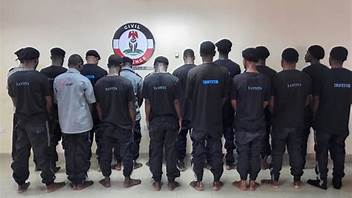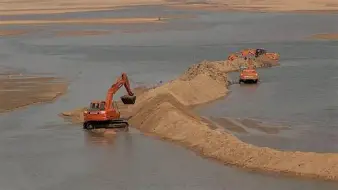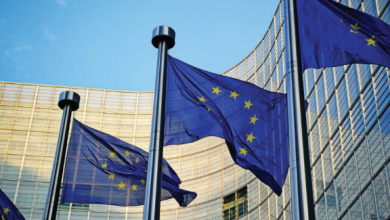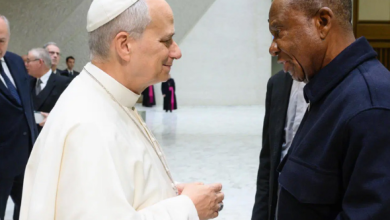ECOWAS pledges stronger drive for regional integration through trade, agriculture, environment
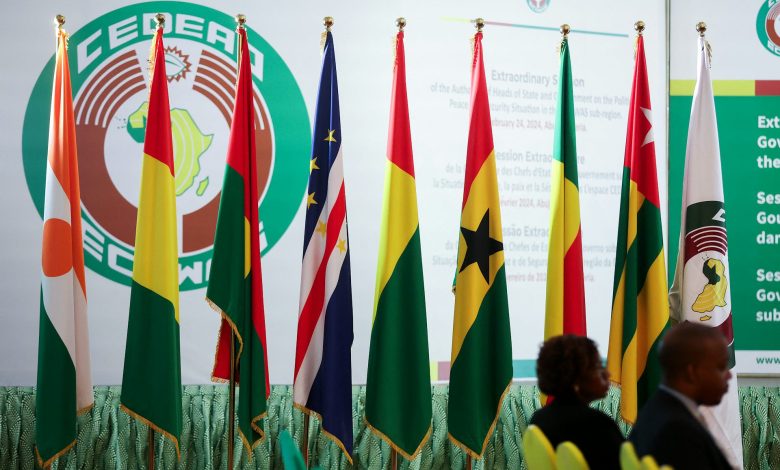
The Economic Community of West African States (ECOWAS) has reaffirmed its commitment to deepening regional integration through large-scale programmes targeted at boosting trade, strengthening agricultural productivity and advancing environmental sustainability across the sub-region.
The pledge was made in Abuja on Wednesday at the opening of a series of technical meetings convened by the ECOWAS Commission to review ongoing interventions and chart new directions for regional development.
The sessions, held under the theme “Regional Interventions Towards Economic Integration in West Africa,” brought together policymakers, technical experts and development partners from across the bloc.
ECOWAS Commission President, Dr. Omar Touray, represented by the Commission’s Vice President, Damtien Tchintchibidja, said the organisation was implementing a comprehensive portfolio of programmes designed to accelerate inclusive growth and strengthen the economic resilience of member states.
Touray said the Commission was pushing forward with initiatives intended to improve industrial capacity, expand agricultural value chains, and promote the free movement of goods and services across the region.
He noted that while the region had made progress in trade facilitation, infrastructure development and peacebuilding, persistent challenges including insecurity and the impacts of climate change—continued to impede economic transformation.
“From fostering a unified regional market to enhancing connectivity and ensuring stability, our efforts have been characterised by resilience and an unwavering dedication to the ECOWAS Vision 2050,” he stated.
The commission president underscored that the bloc’s agricultural programme remained central to its development agenda. Despite agriculture being the region’s largest employer, he said an estimated 12 per cent of West Africa’s population was battling food insecurity.
Citing the ECOWAS Agricultural Policy (ECOWAP) as the framework guiding regional interventions, Touray said the Commission was working to modernise production systems, expand agribusiness opportunities and improve food and nutritional security.
He highlighted new efforts under the West Africa Fertiliser and Soil Health Initiative, aimed at restoring degraded lands and boosting crop yields through improved soil management.
“By investing in soil health and ensuring access to fertiliser, we are laying the groundwork for a resilient agricultural sector capable of feeding our population and creating sustainable jobs for women and youth,” he said.
Touray said ECOWAS was also intensifying its actions on environmental protection, especially through the management of plastic pollution, which he described as a growing threat to public health, ecosystems and economic activities.
He added that the region was pushing for harmonised trade policies, elimination of tariff and non-tariff barriers, and implementation of the ECOWAS Trade Liberalisation Scheme and the African Continental Free Trade Area (AfCFTA) to increase intra-African trade.
The Commission, he said, was additionally investing in renewable energy promotion, land restoration, climate adaptation and new digital strategies, including the rollout of an ECOWAS e-commerce framework.
Nigeria’s Minister of Agriculture and Food Security, Sen. Abubakar Kyari, said agriculture, trade and environmental protection were inseparable pillars of regional prosperity.
He emphasised that sustainable food production relied heavily on strong trade systems and sound environmental management.
Kyari noted that Nigeria’s agricultural strategy aligned with ECOWAP and reflected the shared vision of a West Africa capable of feeding itself and trading competitively.
“The strength of this region will always mirror the strength of our cooperation,” he said, urging member states to harmonise regulatory frameworks, unify quality standards and deepen knowledge exchange.
Also speaking, the Minister of Environment, Balarabe Lawal, described the meeting as a defining moment in the region’s push for sustainable growth and environmental governance.
He warned that West Africa generates more than 2 million tonnes of plastic waste annually—much of which ends up in waterways, oceans, drainage systems and open dumps—posing grave risks to food security, climate resilience and public health.
Lawal commended ECOWAS for adopting an integrated approach linking trade, agriculture and environmental protection, saying Nigeria was committed to supporting efforts to harmonise environmental standards and strengthen institutions across the sub-region.
